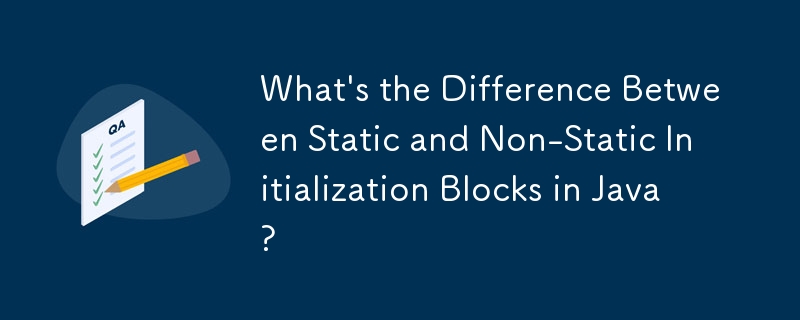

Static vs. Non-Static Initialization Code Blocks
The distinction between static and non-static initialization code blocks in Java relates to their execution and scope within a class.
Static Initialization Blocks
A static initialization block, denoted by the static keyword, is executed upon class loading. These blocks are used to initialize static class members, such as constants or static variables, and are executed in the order they are defined. The example provided demonstrates a static initialization block that initializes a static final field and invokes a static method.
Non-Static Initialization Blocks
In contrast, a non-static initialization block (also known as an instance initializer) is executed upon object instantiation. These blocks are used to initialize instance members, such as non-static variables or fields, and are executed after the superclass constructor is called but before the object's own constructor.
Purpose and Usage
Static initialization blocks are typically used for operations that should occur only once when the class is loaded, such as initializing class-wide resources or performing one-time setup tasks. Non-static initialization blocks, on the other hand, are used for initializing instance-specific data or performing operations that occur for each instance of the class.
Access to Variables
A static initialization block can access static class members, including static variables and methods. However, it cannot access non-static instance members, as these are only available within the context of an object. Conversely, a non-static initialization block can access both static and non-static members of the class.
Conclusion
Understanding the difference between static and non-static initialization code blocks is essential for effectively initializing and managing data within Java classes. Static initialization blocks provide a convenient way to initialize class-wide resources, while non-static initialization blocks facilitate the initialization of instance-specific data.
The above is the detailed content of What's the Difference Between Static and Non-Static Initialization Blocks in Java?. For more information, please follow other related articles on the PHP Chinese website!




